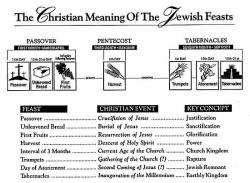What does God teach us in the Book of Matthew?
The Gospel of Matthew contains a wealth of spiritual teachings attributed to Jesus Christ. While interpretations may vary, here are some key insights and lessons that many readers derive from the Book of Matthew:
The Kingdom of Heaven:
- Matthew emphasizes the concept of the "Kingdom of Heaven," portraying Jesus as the promised Messiah and the King who inaugurates a spiritual kingdom. The teachings in parables often convey truths about the nature of this kingdom.
The Sermon on the Mount:
- Matthew chapters 5-7 contain the Sermon on the Mount, a collection of teachings that outline the principles of Christian living. The Beatitudes, in particular, highlight virtues such as humility, mercy, and peacemaking.
Love and Compassion:
- Jesus emphasizes the importance of love, compassion, and forgiveness. The command to "love your neighbor as yourself" is central to the teachings in Matthew (Matthew 22:39).
Discipleship and Following Jesus:
- Matthew presents the call to discipleship as a commitment to follow Jesus wholeheartedly, leaving behind worldly attachments. The narrative often contrasts the values of the Kingdom of Heaven with the values of the world.
Faith and Trust:
- Many stories in Matthew underscore the importance of faith and trust in God. The accounts of Jesus calming the storm (Matthew 8:23-27) and walking on water (Matthew 14:22-33) highlight the power of faith.
Prayer and Relationship with God:
- The Lord's Prayer (Matthew 6:9-13) provides a model for prayer, emphasizing a personal relationship with God, acknowledgment of His holiness, and dependence on His guidance and provision.
The Great Commission:
- In Matthew 28:19-20, Jesus gives the Great Commission, instructing his followers to make disciples of all nations. This commission emphasizes the global and inclusive nature of the message of the Gospel.
Warnings Against Hypocrisy and Legalism:
- Jesus strongly condemns hypocrisy and legalism, highlighting the importance of sincerity, mercy, and justice over mere outward observance of religious rituals (Matthew 23).
End Times and Judgment:
- Matthew includes teachings about the end times and the judgment of the nations, emphasizing the need for readiness, faithfulness, and ethical living in anticipation of Christ's return.
Salvation by Grace Through Faith:
- While not as explicit as in some other New Testament books, Matthew contributes to the broader understanding of salvation by grace through faith in Jesus Christ.
These teachings collectively provide a guide for Christian living, emphasizing love, compassion, humility, and faith in God. They also call believers to actively participate in the establishment of God's Kingdom on earth and to spread the message of the Gospel to all nations. Interpretations may vary, and individuals and communities often find specific lessons that resonate with their spiritual journeys.
What are the primary teachings imparted by God in the Book of Matthew?
The primary teachings imparted by God in the Book of Matthew can be summarized through several key themes:
1. Fulfillment of Prophecy: Matthew emphasizes Jesus as the long-awaited Messiah, fulfilling the prophecies of the Old Testament. This establishes Jesus' legitimacy and authority as the chosen one of God.
2. Kingdom of Heaven: This central theme represents God's reign on earth, which Jesus inaugurates through his teachings and actions. The Kingdom is not solely a future event but also present through faith and obedience to God's will.
3. Discipleship: Following Jesus and living according to his teachings is a core message throughout the book. This includes embracing ethical principles, loving others, and spreading the gospel message.
4. Love and Forgiveness: Jesus emphasizes love for God, neighbor, and even enemies. This radical notion challenges traditional boundaries and emphasizes compassion and understanding.
5. Salvation: Through his death and resurrection, Jesus offers forgiveness for sin and the possibility of eternal life. This central message provides hope and purpose for humanity.
Beyond these core themes, several specific teachings are highlighted in Matthew:
- Sermon on the Mount: This central section outlines Jesus' ethical teachings, including the Beatitudes, the Lord's Prayer, and instructions for righteous living.
- Parables: Jesus uses parables to illustrate spiritual truths and challenges traditional interpretations of the law.
- Miracles: Jesus performs numerous miracles, demonstrating his power and authority over nature and revealing God's presence in the world.
- Last Supper and Eucharist: This significant event establishes the sacrament of Holy Communion, commemorating Jesus' sacrifice and offering spiritual nourishment to believers.
While these are some of the primary teachings, Matthew's message is vast and multifaceted. Each reader can discover new insights and applications as they delve deeper into the text and reflect on its meaning.
Here are some additional points to consider:
- Matthew's target audience was primarily Jewish Christians, so the teachings often address specific concerns and interpretations of the Old Testament.
- The book emphasizes continuity and connection between the Old and New Testaments, showcasing Jesus as the culmination and fulfillment of God's plan for humanity.
- Studying Matthew alongside other Gospels provides a deeper understanding of Jesus' teachings and allows readers to compare and contrast different perspectives on his life and ministry.
By exploring the richness of the Book of Matthew, individuals can gain valuable insights into God's character, his love and forgiveness, and the path to eternal life.













